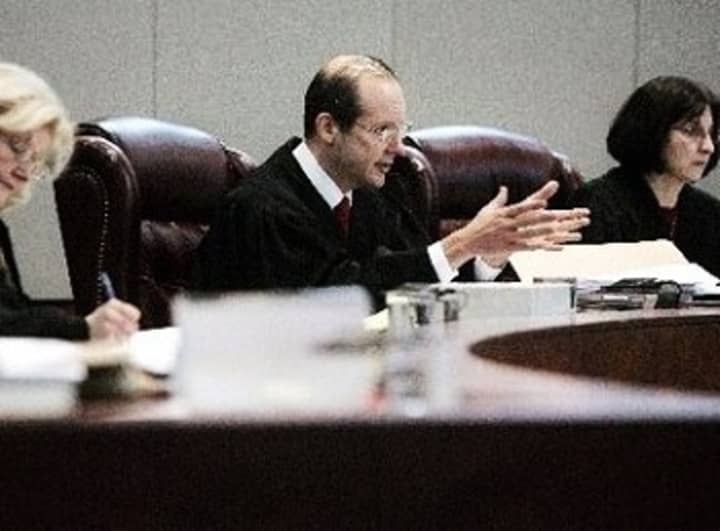The NJ Supremes
“[T]he time has come to join other states that require the imposition of an ‘appropriate sanction’ whenever an officer’s written notes are not preserved,” the majority wrote, following the 4-3 vote.
“Law enforcement officers may not destroy contemporaneous notes of interviews and observations at the scene of a crime after producing their final reports,” temporary justice Edwin Stern wrote.
The mandate doesn’t kick in for a month. This, the court said, will give the state Attorney General enough time to pass the word to county prosecutors — who will then hand it down to their area police chiefs.
After that, judges may begin telling jurors they can consider “adverse inference” in reaching verdicts if notes are lost or destroyed before trial. In other words, missing notes can be considered negatively in determining whether a police officer is telling the truth.
Jerry DeMarco Publisher/Editor
So, in a sense, while defendants are innocent until proven guilty, law enforcement officers can have their work immediately nullified if a set of paperwork is missing. So much for swearing on the Bible.
Defense attorneys are thankful for the decision, which gives them an additional shot at homing in on errors or inconsistencies.
Meanwhile, police officials statewide are wondering what effect the strict requirements will have at a time when they’re being forced to do more with less.
But what about the court proceedings themselves? It’s not unreasonable to think we could see longer depositions and trial testimony. Taking it a conspiracy-theory step further, what if a witness suddenly comes forward saying he or she was interviewed, but no notes of it exist: Does the entire case get tossed?
Jon Shane, a professor of criminal justice at the John Jay College of Criminal Justice, told The Star-Ledger noted that New York City uses special notebooks that create duplicate copies of notes and require a supervisor’s signature as a protection against tampering.
“What you’re talking about is accountability. That’s what the Supreme Court is imposing on policing,” he said. “It It has to be in a systematic manner.”
The good news is that most cops hold onto their notes, anyway. It only makes sense. An officer who handles an undetermined number of incidents each year can’t reasonably be expected to remember every last detail of a traffic stop 18 or more months ago.
He or she can better remember what happened with notes to refer to.
Click here to follow Daily Voice Fort Lee and receive free news updates.



